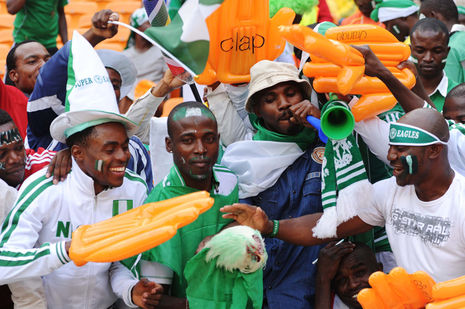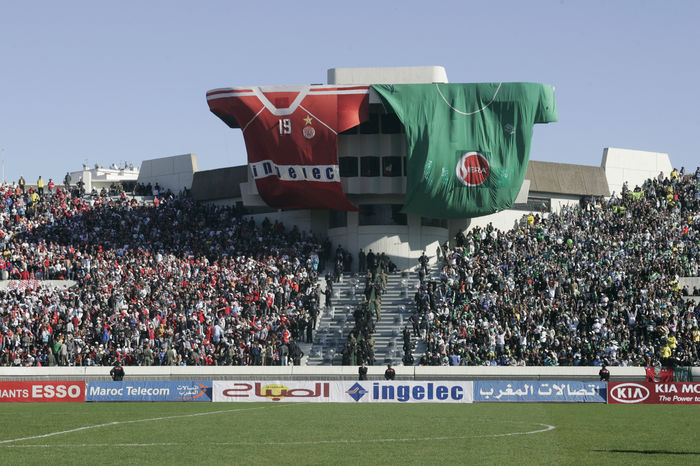AFCON 2021: an exhibition of Europe’s disdain for African football
With this year’s Africa Cup of Nations kicking off on Sunday (09/01), Chris Price condemns the tournament’s treatment in Europe, highlighting the footballing double standards and racism that have filled the competition’s build-up

Despite fears of the tournament being postponed after Covid-19 concerns were raised by European clubs and organisations, the Africa Cup of Nations 2021 (AFCON) begins just tomorrow (09/01). The tournament will kick off with Cameroon – this year’s hosts – taking on Burkina Faso at the Olembe Stadium in the host’s capital, Yaoundé. Many of the world’s top stars are arriving in Cameroon, including the Premier League’s Mohammed Salah, Sadio Mané, and Riyad Mahrez, with 24 teams from across the continent competing in the tournament.
The tournament is finally due to start after Cameroon’s hosting was delayed back in June 2020, when the Confederation of African Football (CAF) cited the global situation as a cause for postponement. Evidencing the latest ‘Omicron’ variant of Covid-19, European clubs attempted to do the same this time around in a bid to disrupt the event, albeit to no avail. They argue that the new variant presents unprecedented health risks which were not previously planned for, and that they cannot be certain the players’ wellbeing will be upheld.
European clubs may be keen to avoid repeating the disaster that the September international break caused, but barring players from travelling to AFCON doesn’t give the impression that they have continued to search for the “reasonable” solutions they insisted they wanted previously. Given that UEFA managed to organise Euro 2020 across eleven different member countries during the pandemic, as well as agreeing to postpone domestic seasons in order to integrate the 2022 Qatar World Cup, it seems that the organisation and its clubs have the capacity to accommodate AFCON, yet have simply chosen not to.
“It seems that once again the fandom of European football followers has blinded them to the behaviour of their organisations”
This has led to charges of racism within European club football, with pundit Ian Wright saying AFCON is continuously “disrespected” and that its coverage is “tinged with racism”. Most obviously so is the scrutiny that African players are being put under in response to representing their nation, a scrutiny much greater than any non-African player can expect to experience. Sebastian Haller, who plays for Ivory Coast and Ajax, experienced exactly that after being asked in a recent interview whether he would be choosing to represent his country at AFCON. When it is so widely accepted that representing your country is the greatest honour in football, why would we question any player as to who they would rather play for? Particularly damning is that European players are never scrutinised in the same way, with European tournaments seemingly deemed more worthwhile than AFCON.
Perhaps the most worrying aspect of it all is that players are receiving both pressure from non-African authorities and media, as well as an online tirade from involved fans for a decision that shouldn’t be on their shoulders anyway. Had UEFA and its European federations made a break in the tournament for AFCON as is planned for Qatar, African players would be able to enjoy the same privileges that other international players do, be able to return to their clubs so as to not disturb domestic seasons, and also avoid the need to decide between club and country. This would be Europe’s “reasonable” solution.
“When it is so widely accepted that representing your country is the greatest honour in football, why would we question any player as to who they would rather play for?”
Two players that have struggled with this exact dilemma are Watford’s pair of Nigerian forward Emmanuel Dennis and Senegalese winger Ismaïla Sarr. In the case of Dennis – who has been excused from attending – the main issue seems to be that of a ‘late email’. Reports have emerged suggesting ex-Nigeria manager Gernot Rohr, who disliked Dennis, didn’t include him in the provisional squad, and thus when interim manager Austin Eguavoen called him up late, it left the decision up to Watford. Despite there being a legal route for this to happen, Watford still had to purposefully block him from going, as proved in the case of Venezia’s Tyronne Ebuehi, who managed to convince his club to let him travel to Cameroon.
This contest over Dennis’ involvement has left him exposed to much commentary from both Nigeria and Watford fans, despite reports that he wished to play for both. However, these rumours suggesting that a professional football player wants to play for his club and country are self-evident and shouldn’t be necessary. Yet given the context that the European cancellation threats have created, this needless discussion has emerged.
Senegal’s Ismaïla Sarr has experienced a similar conflict between Watford and his nation’s FA, this time the sticking point being his injury. The forward, who sustained knee ligament damage in November against Manchester United, was only released by his club on Tuesday (04/01) after Senegal criticised Watford’s injury excuse. Watford refuted with an official statement addressing Sarr’s injury, yet the player was eventually released for checks by the Senegalese medical team. Senegal outlined they believed Watford were a serious part of the racist discourse surrounding AFCON, describing their excuses as “spurious” and their behaviour as “disrespectful, pernicious, and discriminatory”. Once again however, Sarr is left in the middle of it all, as he battles competing interests from his club and country.
These issues should have started outrage in the footballing world, but they haven’t. It seems that once again the fandom of European football followers has blinded them to the behaviour of their organisations. Like the allegations of labour abuse for the Qatar World Cup, or Russian fossil fuel company Gazprom’s sponsorship of the Champions League, it seems this next injustice will be swept away in the name of ‘keeping politics out of sport’. Meanwhile, the world of European football continues to say “No to Racism”, while failing to listen to one of its best pundits in Ian Wright, as he calls out the systemic racism present throughout its Eurocentric culture.
Africa Cup of Nations 2021 can be viewed in the UK on Sky Sports and BBC throughout January and early February.
 Comment / Plastic pubs: the problem with Cambridge alehouses 5 January 2026
Comment / Plastic pubs: the problem with Cambridge alehouses 5 January 2026 News / Cambridge businesses concerned infrastructure delays will hurt growth5 January 2026
News / Cambridge businesses concerned infrastructure delays will hurt growth5 January 2026 News / New movement ‘Cambridge is Chopped’ launched to fight against hate crime7 January 2026
News / New movement ‘Cambridge is Chopped’ launched to fight against hate crime7 January 2026 News / AstraZeneca sues for £32 million over faulty construction at Cambridge Campus31 December 2025
News / AstraZeneca sues for £32 million over faulty construction at Cambridge Campus31 December 2025 News / Uni-linked firms rank among Cambridgeshire’s largest7 January 2026
News / Uni-linked firms rank among Cambridgeshire’s largest7 January 2026









